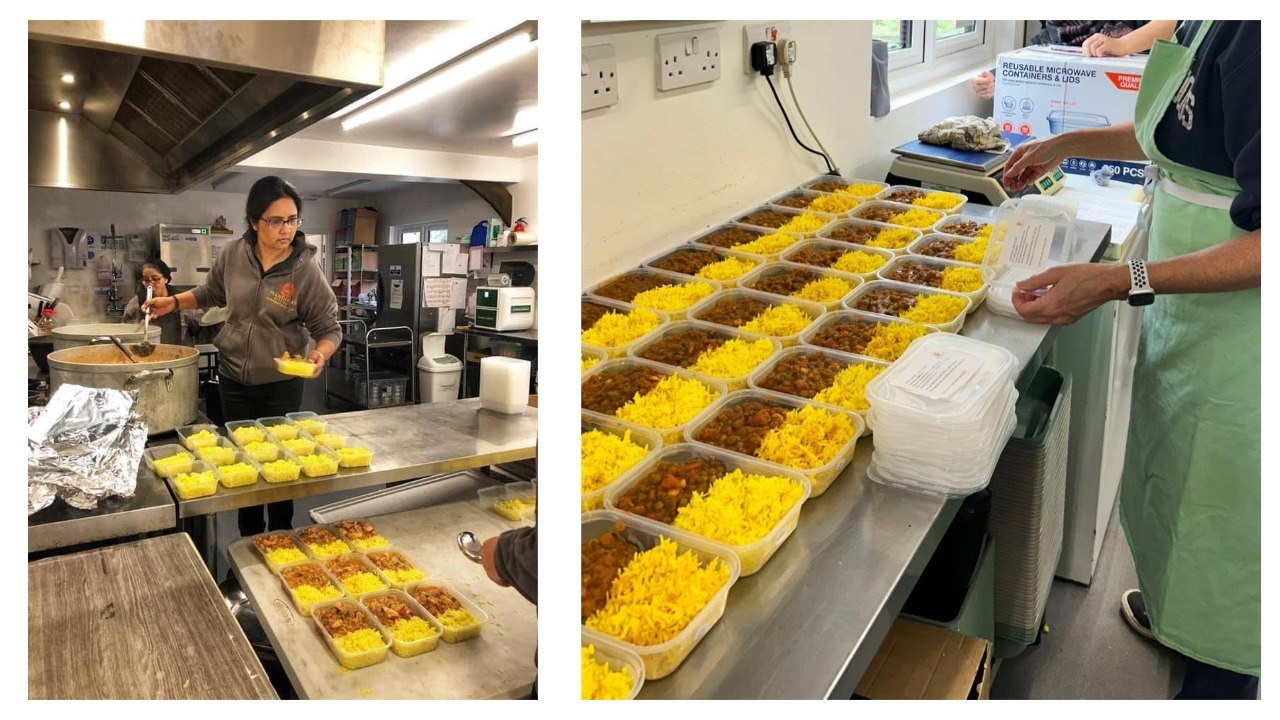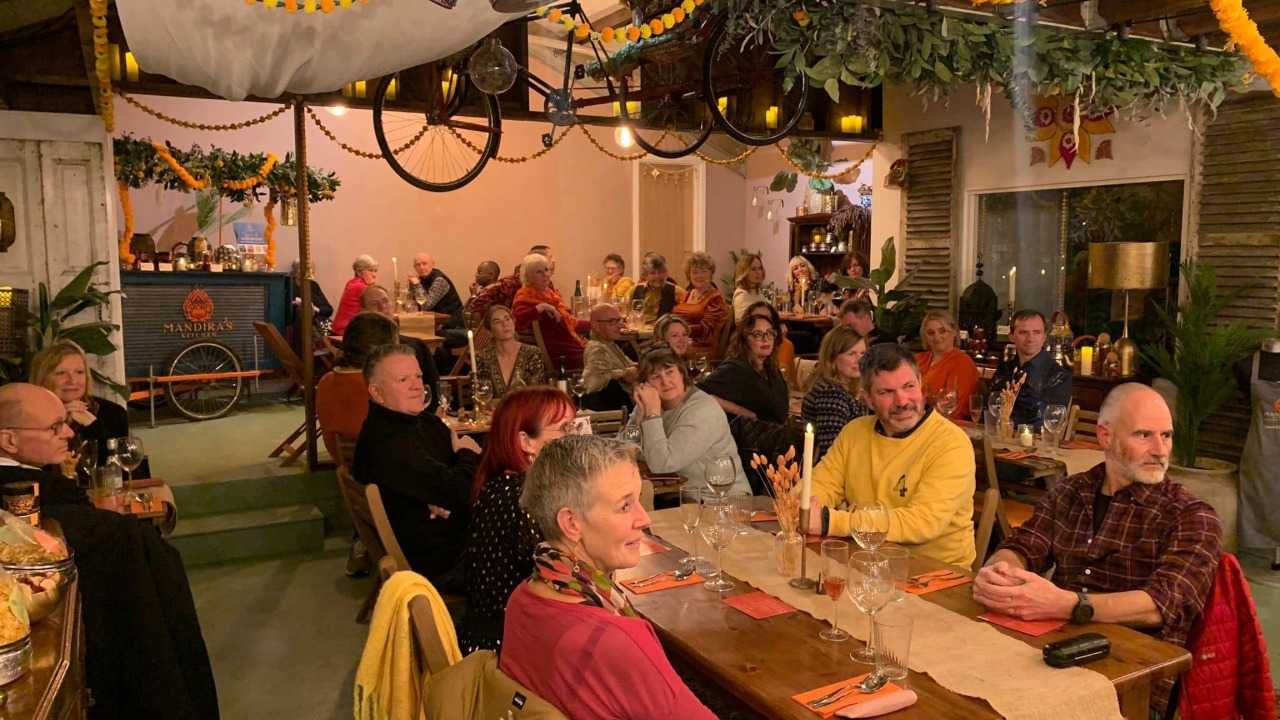A Knock at the Door: How One Café’s Ordeal Exposes the Human Cost of Immigration Crackdowns
Posted by Emma on 5th Oct 2025 Reading Time:
In the picturesque Surrey Hills, where winding lanes meet old stone cottages and weekend cyclists stop for tea, the tranquillity was shattered one September afternoon when immigration officers descended upon Mandira’s Kitchen. Known for its small-batch Indian ready meals — and admired by celebrity chef Nigella Lawson — the business became the centre of a deeply unsettling episode that has left the hospitality community questioning the balance between enforcement and fairness.

An “Intimidating” Scene in the Surrey Hills
On 17 September, eleven immigration and police officers entered Mandira’s Kitchen through both the front and rear doors, some even climbing over fences. The café’s five staff members — three from Pakistan and two from India — were immediately separated and questioned. None were found to be working illegally.
Owner Mandira Sarkar, who was on a once-in-a-lifetime safari in the Serengeti when the raid took place, described the incident as “intimidating and intrusive”. Staff were interrogated about their studies, families, and personal lives, including questions about university attendance and their children. One worker was even forced to prove he was not the person officers had mistaken him for.
“They came in and separated the staff. They were not allowed to speak to each other,” Sarkar explained. “The manner in which they conducted the visit was appalling. It feels like our personal space has been violated.”
Her staff corroborated her account, saying they were prevented from answering calls and pressured into producing documentation on the spot.
A Lawful Business, Wrongly Targeted
Mandira’s Kitchen holds a government-issued sponsor licence, obtained after a two-year process, allowing it to employ foreign nationals legally. The café has sponsored two employees — a chef and a kitchen manager — whose specialised skills are essential to producing the restaurant’s authentic Indian dishes.
Despite full compliance, the Home Office later confirmed that no offences were identified. The raid was authorised under Section 179 of the Licensing Act 2003, which allows immigration officers to inspect licensed premises such as pubs and restaurants without a warrant if they suspect illegal activity.

A Home Office spokesperson stated:
“Illegal working undermines honest employers, undercuts local wages, and fuels the criminal industry of immigration crime. This government is determined to clamp down on that illegal activity in every sector where it occurs, including the hospitality sector.”
However, critics argue that the broad powers granted under Section 179 are being used too aggressively. Immigration lawyer Nichola Carter of Keystone Law confirmed that enforcement visits have increased dramatically: “What began with care homes has now expanded into other sectors, including hospitality. It’s absolutely going to escalate.”
A Growing Climate of Fear
The Home Office’s own figures reveal the scale of this enforcement drive. In the three months to June, a record number of sponsor licences were revoked, while 568 fines were issued to businesses — totalling £21.5 million in just one quarter.
For legitimate employers, this climate creates anxiety and disruption. Carter advises business owners to prepare for unexpected visits by keeping all right-to-work documents accessible and ensuring that staff know how to respond if management is absent. “Junior employees tend to panic in these situations,” she said. “An action plan is essential.”
Sarkar agrees that checks are necessary but insists that proportionality and respect must prevail. “A sponsor licence is a hard-won achievement. Why would any legitimate business owner go through all that trouble only to break the rules? The approach was unnecessarily aggressive.”

The Broader Implications for Hospitality
For many in the hospitality and fish and chip industries — sectors already struggling with staffing shortages, rising costs, and compliance burdens — this incident is more than a cautionary tale. It raises a critical question: At what point does enforcement become intimidation?
Businesses dependent on skilled migrant labour now face the added pressure of unannounced inspections and public embarrassment, even when fully compliant. The reputational damage and emotional toll on staff cannot be easily undone.
Sarkar, whose café once hosted the Duke of Edinburgh and enjoys strong community support, has received an outpouring of sympathy since the raid. But the ordeal highlights a troubling reality — that even reputable, award-winning businesses are not immune from overreach.
A Wake-Up Call for Every Employer
The case of Mandira’s Kitchen should serve as a wake-up call for employers across the hospitality sector. Immigration enforcement is tightening, and mistakes — even bureaucratic ones — can have devastating consequences for small businesses.
Carter’s advice is clear: “Ensure your compliance is watertight, but also prepare your teams. Have systems in place, because when enforcement officers arrive, it’s often without warning.”
For Sarkar, the experience has been deeply personal: “I understand the need for checks. But the way it was done — in front of customers, jumping over fences, questioning people about their children — it was demeaning. It’s not just about legality; it’s about humanity.”



